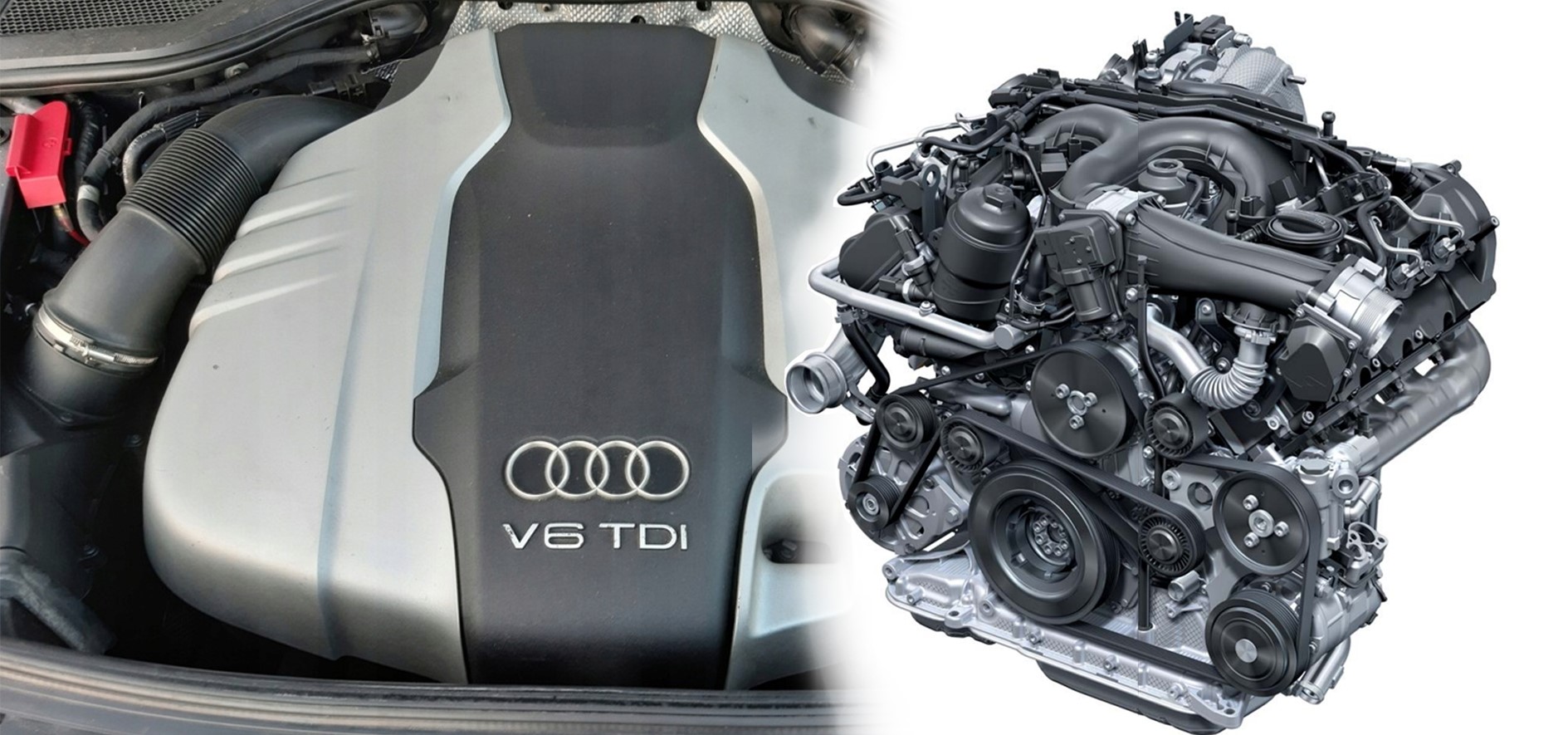
En sorunlu VAG motorları ve en sorunsuz versiyonları
Yayınlarda sık karşıma çıkan ve daha önce değindiğimiz sabıkalı motorların aksine, farklı senelerde üretilen versiyonlarıyla sorunsuzlukları ciddi ölçüde değişkenlik gösteren ve Volkswagen Grubu tarafından üretilen bazı ünitelerden bahsedeceğiz bugün.
1.4 TDI
Volkswagen’in 3 silindirli 1.4 TDI motorları, markanın en dayanıklı ünitelerinden biri olan 1.9 TDI’ın bir silindir eksik hali olarak tasarlandı...
Fakat aynı ölçüde sorunsuz değiller.
- AMF (75 HP, 2001-2005): Erken nesil motorlar, basit tasarımlarıyla uzun ömürlü. Demir döküm blok.
- BNM/BWB (70-80 HP, 2005-2009): Yağlama sorunları ve turbo arızalarıyla biliniyor. Motorun titreşim seviyesi yüksek ve balans şaftı eksikliği uzun süreli kullanımlarda sorun yaratabiliyor. Demir döküm blok.
- CUS (90 HP, 2014-2021): 1.9 TDI'dan bağımsız, yeni tasarım, alüminyum blok. Daha az titreşimli ve iyileştirilmiş enjeksiyon sistemine sahip. Ancak EGR valfi ve turbo dayanıklılığı zayıf.
3.0 TDI (V6 CR TDI ve BiTDI)
Bilhassa C7 kasa Audi A6'larda karşımıza çıkan bu motor, yüksek tork-performans sunmasına ve genel olarak dayanıklı olarak bilinmesine rağmen, bazı versiyonlarında problemler mevcut.
- CJGA (204 HP, 2012-2014): Daha düşük güç çıkışı nedeniyle daha az zorlanıyor ve uzun ömürlü.
- CAS (240 HP, 2008-2012): Erken üretim versiyonları, DPF (Dizel Partikül Filtresi) ve EGR sorunlarıyla bilinse de mekanik olarak daha dayanıklı.
- CRT (211/272 HP, 2010-2018): Yüksek basınçlı common-rail enjeksiyon sistemi ve AdBlue sistemindeki arızalarla dikkat çekiyor. Ayrıca, krank mili rulman aşınması ve eksantrik zincir gergisi sorunları yaşanabiliyor. Özellikle yüksek kilometrelerde yağ pompası arızası riski artıyor, ancak tüm bu problemler 272'lik türevde daha yaygın.
- CMEA (313 HP, 2012-2015): Çift turbo sistemi nedeniyle karmaşık bir yapıya sahip olsa da, EGR ve DPF arızaları haricinde büyük oranda sorunsuz. EA897 Evo 1 ailesinin bir üyesi.
- DAVA (224 HP, 2016-2022): VW Amarok'ta karşımıza çıkan bu motor, EA897 Evo 2 nesline ait ve dayanıklılık/off-road gereksinimlerine öncelik verilerek tasarlandı. Krank mili, piston yapısı ve soğutma sistemi gibi detaylarda bu farklar belirgin. Çoğu modern dizelde karşılaştığımız AdBlue, EGR ve DPF arızaları görülebiliyor. Ayrıca yüksek basınçlı yakıt pompasının (CP4.2) düşük kaliteli mazota karşı hassasiyeti, sorunlara yol açabiliyor (metal talaşı nedeniyle enjektörlerin zarar görmesi gibi).
- DBGC (286 HP, 2018–): VW Touareg ve Audi Q7 gibi modellerde karşımıza çıkan Euro6d bu motor, EA897 Evo 3 ailesine mensup ve bir önceki DAVA kodlu ünitenin geliştirilmiş hali. Yazılım kalibrasyonu, turbo haritaları ve ısı yönetimi, daha yüksek güç ve rafine bir sürüş sağlamak için optimize edilmiş. Potansiyel sorunlarıysa gene üstteki 224'lük türevle aynı.
1.4 TSI (Twincharger)
Bu motor, hem turbo hem de kompresör kombinasyonu kullanan ve zamanına göre yenilikçi bir yapıya sahipti.
- CAV (140–180 HP, 2006-2012): Erken üretim versiyonu olan CAV kodlu motor, zincir gerilmesi, piston erimesi ve yağ tüketimi gibi ciddi sorunlarla karşılaştı. Özellikle zincir gergisi mekanizmasının tasarımı, zincir atlama riskine neden oluyordu.
- CTH (160–180 HP, 2012-2014): CAV'ye göre piston ve segman tasarımı geliştirilerek sorunlar büyük ölçüde giderilmiş olsa da, karbon birikimi ve yağ tüketimi devam etti.
- CZC (2014–): 2014 sonrası CZC kodlu 1.4 TSI'lar ACT (Silindir Kapatma Teknolojisi) barındırıyor, twincharger tasarımını terk ederek yalnızca turbo kullanımıyla daha dayanıklı hale geldiler.
1.8 TFSI
EA888 serisi altında üretildiler ve karbon birikimi gibi yaygın sorunlara sahipler. Eski nesil ve dayanıklı 1.8 T'lerle karıştırılmamalı.
- CDA (160 HP, 2008-2011): Segman tasarımı nedeniyle yüksek yağ tüketimi problemi yaşanıyor. Ayrıca, zincir gergisi hataları ve PCV valfi arızaları yaygın.
- CJEB (170 HP, 2012-2015): Güncellenmiş segman yapısıyla daha az yağ tüketimi sorunu yaşanıyor. Ancak karbon birikimi hâlâ ciddi bir problem.
- DKRA (180 HP, 2015–): Soğutma ve yakıt enjeksiyon sistemlerinde yapılan iyileştirmeler sayesinde daha güvenilir.
2.0 TFSI (EA888 Gen 1-3)
Gene EA888 serisi altında üretilen 2.0 TFSI motorlar, güç/ağırlık oranıyla öne çıkıyor. Ancak bazı türevleri, 1.8 TFSI'larda olduğu gibi hatalı tasarımlarla tanınıyor.
- CAWB (200 HP, 2006-2009): Yüksek yağ tüketimi ve karbon birikimi sorunları yaygın. PCV ve turboşarj sisteminde de dayanıklılık eksiklikleri görülüyor.
- CAEB (200 HP, 2009-2012): Gen 2 versiyonu. CAWB'ye kıyasla bir miktar geliştirilmiş olsa da yağ tüketimi ve PCV gibi majör sorunlar devam ediyor.
- CJXC (220 HP, 2012-2016): Gen 3 versiyonu ve daha dayanıklı. Termostat ve su pompası sorunları azalmış olsa da tamamen giderilmedi.
- DKTP/CJXB (190/252 HP, 2016-2019): Gen 3B versiyonu. Yeniden tasarlanan pistonlar, geliştirilmiş soğutma sistemi ve azaltılmış karbon birikimiyle büyük ölçüde sorunsuz.
- DKZA (245 HP, 2019-2022): Daha az karbon birikimi ve iyileştirilmiş yağlama sistemiyle öne çıkıyor, en sorunsuz versiyon.
Yukarıda yer almayan Volkswagen grubu motorların ciddi bir problemi bulunmuyor. Özellikle 1.6 TDI, 1.9 TDI ve tek turbolu 1.4 TSI'lar, sağlam yapılarıyla öne çıkıyor. 2.0 TDI'ların 2008 sonrası CR kodlu (common-rail) türevleri büyük oranda sorunsuz, en sağlamlarıysa 2020 sonrası Evo'lar. Bununla beraber;
- 1.5 TSI'ların 2020 öncesi (DADA) örneklerinde, düz vitesle kullanıldığında düşük devirlerde bir 'kanguru etkisi' (sarsıntılı çalışma) mevcut. Sonraki Evo2'lerde bu sıkıntı büyük oranda giderildi.
- 1.0 TSI'lar genel olarak 3 silindirin yapısı gereği titreşimli çalıştığı için sık motor kulağı değişimi gerektiriyor. 2020 öncesi CJP kodlu örneklerin kronik termostat arızası mevcut, sonraki DKRF kodlu türevlerde bu çözüldü.
- 1.2 TSI’ın EA111 kodlu (Jetta’da 2009–2015) 8 subaplı ilk versiyonları (CBZA/CBZB), zincir gergisi sorunları nedeniyle yağlama arızaları ve yağ yakma problemleriyle biliniyor. Turbo dayanıklılığı ortalama seviyede. Sonraki EA211 kodlu, 16 valfli, BMT (BlueMotion) motorlar (CJZA/CJZC), zincir yerine triger kayışına geçerek yağ eksiltme ve turbo problemlerini büyük ölçüde çözdü.
- 1.6 FSI (BAG, BLF, BLP, BSE, BSF) EGR, oksijen sensörü, değişken supap zamanlama mekanizması, buji ve bobin arızaları, yakıt pompası ve enjektör sorunları, karbon birikimi, yüksek yakıt tüketimi ve düşük performansıyla bilinir.


23 Yorum